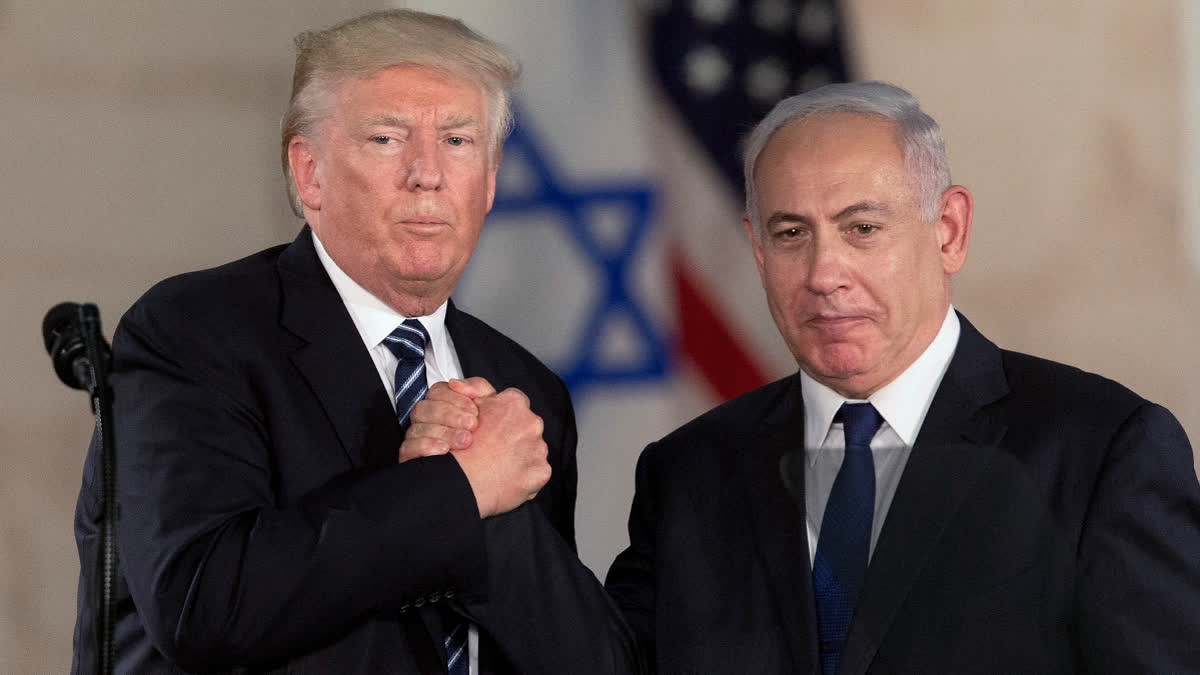Gaza Strip:President Donald Trump has invited Israeli Prime Minister Benjamin Netanyahu to the White House next week as the first foreign leader to visit in Trump's second term, Netanyahu and the White House said Tuesday.
The announcement came as the United States pressures Israel and Hamas to continue a ceasefire that has paused a devastating 15-month war in Gaza. Talks about the ceasefire's more difficult second phase, which aims to end the war, begin next Monday.
The White House letter shared by Netanyahu's office, dated Tuesday, said “I look forward to discussing how we can bring peace to Israel and its neighbors, and efforts to counter our shared adversaries.”
The meeting on Feb. 4 is a chance for Netanyahu, under pressure at home, to remind the world of the support he has received from Trump over the years, and to defend Israel's conduct of the war. Last year, the two men met face-to-face for the first time in nearly four years at Trump’s Florida Mar-a-Lago estate.
Israel is the largest recipient of U.S. military aid, and Netanyahu is likely to encourage Trump not to hold up some weapons deliveries the way the Biden administration did, though it continued other deliveries and overall military support.
Netanyahu also wants Trump to put more pressure on Iran, and renew efforts to deliver a historic normalization agreement between Israel and Saudi Arabia, a rival of Iran and the Arab world’s most powerful country.
Even before taking office this month, Trump was sending his special Middle East envoy, Steve Witkoff, to the region to apply pressure along with the Biden administration to get the current Gaza ceasefire achieved.
But Netanyahu has vowed to renew the war if Hamas doesn’t meet his demands in negotiations over the ceasefire's second phase, meant to discuss a complete Israeli withdrawal from Gaza and a “sustainable calm."
Over 375,000 return to northern Gaza
Under the deal, more than 375,000 Palestinians have crossed into northern Gaza since Israel allowed their return on Monday morning, the United Nations said Tuesday. That represents over a third of the million people who fled in the war’s opening days.
Many of the Palestinians trudging along a seaside road or crossing in vehicles after security inspections were getting their first view of shattered northern Gaza under the fragile ceasefire, now in its second week.
Trump this week suggested that Egypt and Jordan take in Palestinians from Gaza, at least temporarily, so that “we just clean out that whole thing" — which Egypt, Jordan and the Palestinians swiftly rejected, fearing Israel would never allow a return.
Instead, Palestinians were determined to pitch makeshift shelters or sleep outdoors amid the vast piles of broken concrete or perilously leaning buildings. After months of crowding in squalid tent camps or former schools in Gaza’s south, they would finally be home.
